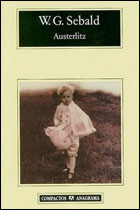Líneas de investigación
Proyectos en Curso
Proyectos Anteriores
 Fricciones: la realidad funciona igual que la ficción
Fricciones: la realidad funciona igual que la ficción  Frictions. Dialogues / Screenings
Frictions. Dialogues / Screenings
Frictions. Dialogues / Screenings |
|
Direction: Pedro G. Romero, Santiago Eraso
PRESENTATIONPRESENTATION As Roberto Bolaño proposed, radical fiction is the only way to confront reality. There are many ways in which to approach this statement, which declares that what is "real" operates in the same way as what is "fictitious". Fundamentally, it is an observation of the transactions that connect language to the world. Isn't language the foundation of the world? Should its representations adhere to an impoverished scientific view of events? And isn't modern science what has freed us of our "logical" view of the world in an unprecedented explosion since logos prevailed over myth? Some artists' calls for "fusion" between art and life foreshadow no more than a violent ingression of fiction into reality. This "fission" often causes friction. The meddlings of fiction in the world are numerous and varied: the remembrances of dreams, iconoclastic reaction, utopian projects, mental delirium. The crossings of phantoms through the world. Take the semiological ravings in writings like those of Raymond Roussel; can a world be built upon these? Are we not witnesses to just that, when the primary economy of the planet is an industry in which fiction is the raw material of its products? Is this a battle of some fictions versus others? Augusto Monterroso's tale, Faith and the Mountains is well worth mentioning here: "In the beginning Faith moved mountains only when absolutely necessary, and so the landscape looked like itself for thousands of years. But when Faith began to propagate and people took a fancy to the idea of moving mountains, all that the mountains did was change location, and it became increasingly difficult to find them in the place in which they had been left the night before, a situation that naturally caused more problems than it solved. The good people then chose to abandon Faith and now the mountains generally remain in their place. When, on the road, a landslide occurs under which various travellers expire, what has happened is that someone, far away or quite close by, has had a very slight glimmer of Faith." Nowadays, to declare that what one writes is absolute fiction guarantees a clean fight. And we still ask, but is there any difference between fiction and reality? Doesn't a punch in the nose make you bleed, no matter what has punched you? Don't fiction and reality both make you laugh? Maybe what we should be talking about is a paradigm of fiction, not of its essence but of its different representations. Discussing the radicalisation of fiction is perhaps the only way to pursue critical approaches to the world. Enrique Vila-Matas facilitates the way for us with a quote from Juan José Saer: "The truth is not necessarily the opposite of fiction". The idea is to propose a discourse on fiction, conversations in pursuit of the friction of discussion, colloquies between Bernardo Atxaga and Enrique Vila-Matas, between Juan Bonilla and Justo Navarro. And to centre the subject, to engage discourse, we will screen Interview with W. G. Sebald, a conversation with the German author focused on the subjects of reality and fiction, novel and autobiography that was filmed for television shortly before his death in December, 2001, when a heart attack caused his automobile to crash into a lorry.
PROGRAMMEPROGRAMME
[All screenings and lectures will be open to the public]
1.- Winfried Georg Sebald (Baviera 1944-2001), was a German author who arrived at the age of 26 to Norwich, England to teach classes at the University of East Anglia, where he chaired the department of European Literature from 1987. He founded and then directed the British Centre for Literary Translation until 1994. His first novel, Vertigo (1990) established the shape and scope of a narrative that led him to become a cult author. His literature combines genres, with such titles as The Emigrants, The Rings of Saturn and Austerlitx, in a rich and complex mixture of essay, novel, travel and poetry that situates him among the highest order of international authors.
GUEST SPEAKERSGUEST SPEAKERS
Bernardo
Atxaga (Astesau, 1951)
Enrique Vila-Matas (Barcelona, 1948)
Juan Bonilla (Jerez de la Frontera, 1966)
Justo Navarro (Granada, 1953)
|
||

